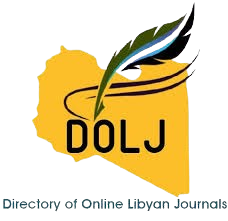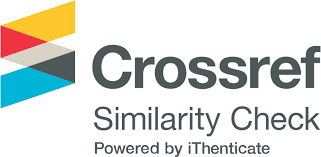The Motivation of Adult Second Language Learners of English in Classroom at a United Kingdom University (Britain)
DOI:
https://doi.org/10.59743/jaf.v3i1.226الكلمات المفتاحية:
motivation، second language learning، international students، pedagogy، socio-cultural contextالملخص
This study explores the motivation of adult second language learners of English. It reports on a three month study of forty participants who are at intermediate and upper intermediate levels in second language learning. It was conducted in International Study Centre at a UK University in the classroom environment. Mixed methods of research: quantitative and qualitative approaches were used in order to triangulate data. Multiple techniques were also used to collect data: questionnaires, semi-structured interviews, and observation. There were three main aims: (1) to highlight types of motivation that influence second language learners, (2) to explore how a teacher might enhance students’ motivation, and (3) to analyse the impact of motivation on second language students. The findings are organised into four themes: reasons for learning English; teaching and learning in the classroom; assessment and feedback, and, finally, socio-cultural context. The results show that a significant percentage 55% out of 40 students indicated that they learn English for communication purposes and because they are interested in English culture. Approximately 25% of participants study English to get a job, or to pass exam. A small number of respondents mentioned that they study English because English is a global language while over 7% of students have more than one reason for learning English. Further, evidence suggests teachers can motivate their students by putting them in pairs or small groups, raising discussion activity. By acting as a monitor, giving rewards and constructive feedback, and teachers can reward and concentrate on the socio-cultural context. The results of this study are offering teachers and syllabus designers a more optimistic way of dealing with students who appear to be lack of motivation.
التنزيلات
المراجع
Alderman, M. (2000) Motivation for Achievement: Possibilities for Teaching and Learning. New Jersey: Lawrence Erlbaum Associates, Inc.
Assor, A. and Kaplan, H. (2001) Mapping the domain of autonomy support: five important ways to enhance or undermine student’s experience of autonomy in learning. Trends and Prospects in Motivational Research. The Hague: Kluwer Academic Publications.
Bell, J. (2005) Doing Your Research Project-A Guide for First-Time Researchers in Education, Health and Social Science. Maidenhead: Open University Press.
Black, A. and Deci, E (2000) The effects of instructors’ autonomy support and students’ autonomous motivation on learning: a self- determination theory perspective. Science Education, 84, pp. 740-756.
Brophy, J. (2004) Motivating Students to Learn. 2nd ed. London: Lawrence Erlbaum Associates, Inc.
Brown, S., Armstrong, S. and Thompson, G. (1998) Motivating Students. London: Kogan Page.
Clark, M. and Christopher, S. (2009) Examining relationships between academic motivation and personality among college students. Learning and Individual Differences, 20, pp. 19-20.
Cohen, L., Manion, L. and Morrison, K. (2000) Research Methods in Education. 5th ed. London: Routledge.
Cook, V. (2008) Second Language Learning and Language Teaching. 4th ed. London: Hodder Education.
Creswell, J. and Clark, V. (2007) Designing and Conducting Mixed Methods Research. London: Sage.
Crystal, D. (1997) English as a Global Language. Cambridge: Cambridge University Press.
Deci, E. L. and Ryan, R. M. (2000) Intrinsic and extrinsic motivation: Classic definitions and new directions. Contemporary Educational Psychology, 25, pp. 54-67
Deci, E. L. and Ryan, R. M. (2008) Facilitating optimal motivation and psychology well-being across life’s domains. Canadian Psychology, 49, pp. 14-13.
Denscombe, M. (1998) the Good Research Guide for Small-Scale Social Research Project. Buckingham: Open University Press.
Dornyei, Z. (2001) Teaching and Researching Motivation. Harlow: Longman.
Dornyei, Z. (2002) The Motivation Basis of Language Learning Tasks: Individual Differences in Second Language Acquisition. Amsterdam: John Benjamins.
Dweck, C. S. (2000) Self- Theories: Their Role in Motivation, Personality and Development. New York: Plenum.
Ellis, R. (2004) Understanding Second Language Acquisition. Oxford: Oxford University Press.
Fairclough, N. (2003) Analysing Discourse: Textual Analysis for Social Research. Routledge: London.
Gardner, R.C. (2000) Correlation, causation, motivation and second language acquisition. Canadian Psychology, 41, pp. 1-24
Gardner, R. C., and Lambert, W. E. (1985) Attitudes and Motivation in Second Language Learning. Newbury House: Rowley.
Gest, S. D. , Welsh, J. A., and Domitrovich, C. E. (2005) Behavioural predictors of changes in social relatedness and liking school in elementary school. School of Psychology, 43, pp. 281-301.
Gilbert, I. (2002) Essential Motivation in the Classroom. London: Routledge.
Harmer, J. (2007) The Practice of English Language Teaching. 4th ed. Harlow: Longman.
Hardre, L., and Reeve, J. (2003) A motivational model of rural students’ intentions to persist in, versus drop out of, high school. JEP, 95, pp. 347-356.
Ho, C. (1998) Culture studies and motivation in foreign and second language learning. Language, Culture and Curriculum, 11(2) pp. 165-171.
Kaufman, A. and Dodge, T. (2008) Students perceptions and motivation in the classroom. Science Psychological Education, 12 (101) pp. 101-103.
Lepper, M. and Henderlong, J. (2000) Turning Play into Work and Work into Play: 25 Years of Research on Intrinsic and Extrinsic Motivation. Orlando: Academic University Press.
Lightbown, P. and Spada, N. (2006) How Languages Are Learned. Oxford: Oxford University Press.
Linnenbrink, A. (2005) Motivation as an enabler for academic success. School Psychology Review, 31, pp. 313-327.
Macaro, E. (2003) Teaching and Learning a Second Language: A Guide to Recent Research and its Application. London: Continuum.
MacGrath, M. (2000) The Art of Peaceful Teaching in the Primary School: Improving Behaviour and Preserving Motivation. London: David Fulton.
McLean, A. (2003) The Motivated School. London: Cromwell Press Limited, Trowbridge, Wiltshire.
Michelle, M. (2008) College English learners’ discursive motivation construction. Science Direct, 37, pp. 301-302.
Norton, B. (2000) Identity and Language Learning: Gender, Ethnicity and Educational Change. Pearson education limited, Harlow.
Nunan, D. (1992) Research Methods in Language Learning. Cambridge: Cambridge University Press.
Oliver, P. (2003) The Student’s Guide to Research Ethics. Maidenhead: Open University Press.
Payne, G. and Payne, J. (2004) Key Conceptions: Social research. London: sage.
Pintrich, P. R. (2000) An achievement goal theory perspective on issues in motivation terminology, theory and research. Contemporary Educational Psychology, 25, pp. 92-104.
Pintrich, P. and Schunk, D. (2002) Motivation in Education: Theory, Research and .Applications. 2nd ed. London: Pearson Education.
Punch, K. (2009) Introduction to Research Methods in Education. London: sage.
Riggs, E. and Gholar, C. (2009) Strategies That Promote Student Engagement. 2nd ed. London: Corwin Press.
Robson, C. (2002) Real World Research (2nd). Malden: Blackwell Publishers.
Rohmah, Z. (2005) English as A global Language: Its Historical Past and Its Future [Website]. Available from: http: // Sastra.um.ac.id/wp-content/unloads-as-a-Global-Language-Its-Historical-Past-and-Its-Future-Zuliat-Rohmah.pdf [Accessed: 1/10/2009]
Sandstone, C. and Harackiewicz, J. M. (2000) Intrinsic and Extrinsic Motivation: The Research for Optimal Motivation and Performance. New York: Academic Press.
Scott, D. and Morrison, M. (2005) Key Ideas in Educational Research. London: continuum.
Scrivener, J. (2005) Learning Teaching: The Essential Guide to English Language Teaching. Oxford: Macmillan Heinemann.
Spolsky, B. (2000) Language motivation revisited. Applied Linguistics, 21 pp. 157- 169.
Urdan, T. and Schoenfelder, E. (2006) Classroom effects on student motivation: Goal structure, social relationships, and competence beliefs. Journal of School Psychology. 44, pp. 331-338.
Urdan, T., Midgley, C. (2003) Changes in the perceived classroom goal structure and patterns of adaptive learning during early adolescence. Contemporary Educational Psychology, 28, pp. 524-551.
Vansteenkiste, M., Simons, J., Lens, W., Sheldon, K. M., and Deci, E. L. (2004) Motivating learning, performance, and persistence. Personality and Social Psychology, 87 (2) pp. 246-260
Waterman, S. (2005) When effort is enjoyed: Two studies of intrinsic motivation for personally salient activities. Motivation and Emotion, 29(3) pp. 165-188.
التنزيلات
منشور
الرخصة
الحقوق الفكرية (c) 2024 مجلة المنتدى الأكاديمي

هذا العمل مرخص بموجب Creative Commons Attribution-NonCommercial-ShareAlike 4.0 International License.





